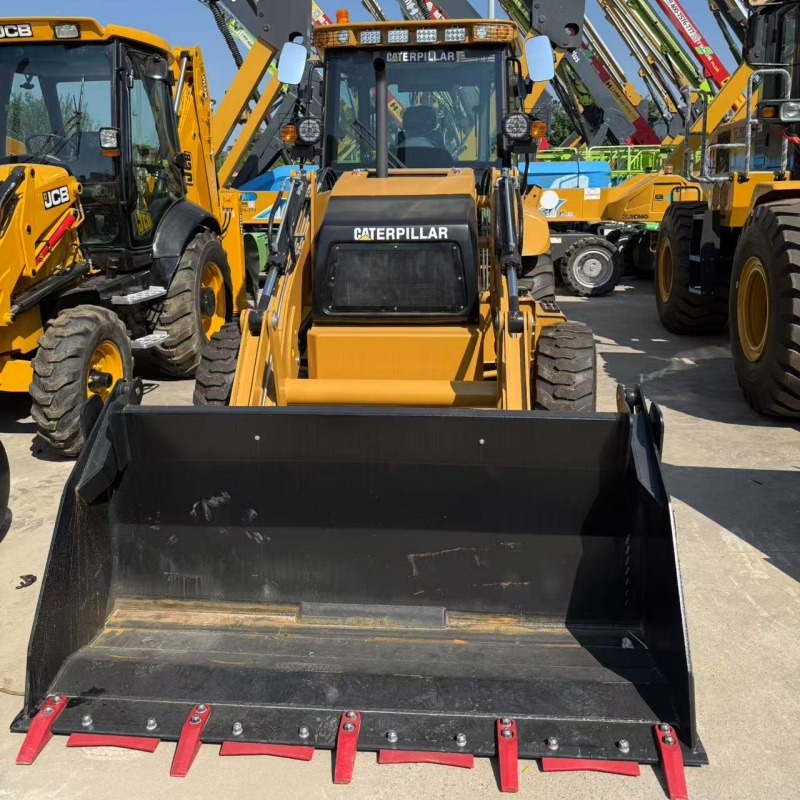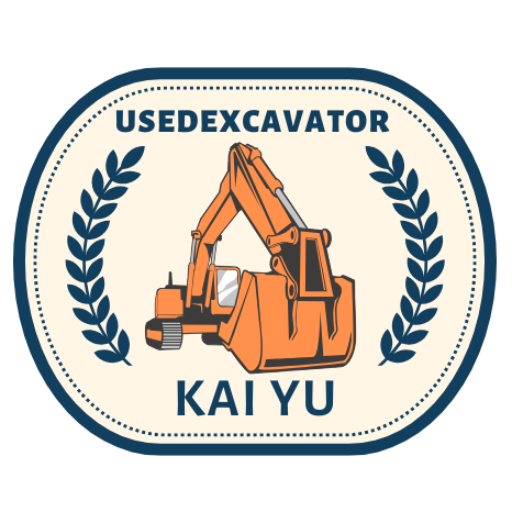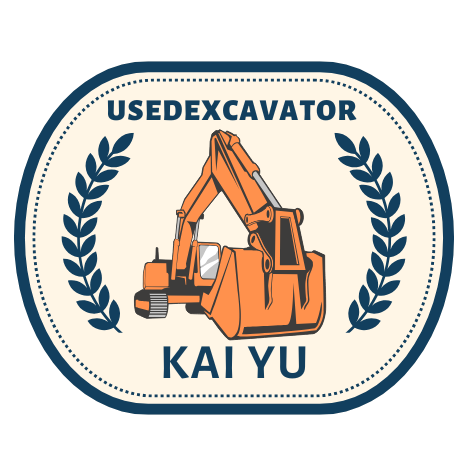China has emerged as a global hub for used construction equipment, including excavators, offering a vast inventory of second-hand models at competitive prices. From budget-friendly older units to late-model machines, the Chinese market attracts buyers worldwide—particularly those in emerging economies like India, Nigeria, and Brazil—seeking cost-effective fleet expansions. However, importing a used excavator from China comes with unique challenges, from navigating complex export regulations to verifying equipment condition. This guide outlines essential tips for successful imports, highlights key risks, and provides strategies to protect your investment.
Key Tips for Importing a Used Excavator from China
Importing a used excavator from China requires careful planning, from vetting sellers to managing logistics. Following these steps can streamline the process and increase the odds of securing a reliable machine.
Choose Reputable Sellers and Verify Their Credibility
The first step in buying a used excavator from China is identifying trustworthy sellers. The market includes a mix of legitimate exporters, local dealers, and individual resellers—but not all operate transparently. Prioritize sellers with a proven track record in international trade, as they are more likely to understand export requirements and provide accurate information.
- Look for industry affiliations: Reputable sellers often belong to associations like the China Construction Machinery Association (CCMA) or the China Used Machinery Exporters Union, which set standards for ethical practices. Membership in these groups signals a commitment to quality and compliance.
- Check online presence and reviews: Legitimate exporters maintain professional websites with detailed inventory listings, clear contact information (including a physical address and phone number), and customer testimonials. Platforms like Alibaba, Made-in-China, or MachineryTrader feature verified suppliers with ratings from past buyers—pay close attention to reviews mentioning timely delivery and accurate equipment descriptions.
- Request references: Ask the seller for contact details of international buyers they’ve worked with in your region. Follow up to confirm satisfaction with the equipment, communication, and post-sale support. A seller reluctant to provide references is a red flag.
For high-value purchases (e.g., excavators over $50,000), consider hiring a local agent in China to conduct on-site visits. Agents can verify the seller’s facility, inspect inventory, and ensure the business is legitimate—critical for avoiding scams.
Thoroughly Inspect the Used Excavator Before Purchase
Verifying the condition of a used excavator is far more challenging when buying from China, as in-person inspections are often impractical for overseas buyers. Relying solely on photos or videos is risky—sellers may hide defects, tamper with hour meters, or advertise machines that no longer exist.
- Hire a third-party inspector: Invest in a certified inspection by an independent company with expertise in construction equipment, such as SGS, Bureau Veritas, or Intertek. These firms have offices in major Chinese cities like Shanghai, Guangzhou, and Qingdao, and can conduct detailed assessments. A comprehensive inspection ($800–$2,000, depending on the machine size) should cover:
- Hour meter accuracy (cross-checked with telematics data if available)
- Engine performance, including compression tests and oil analysis
- Hydraulic system functionality (checking for leaks, pressure, and responsiveness)
- Undercarriage wear (tracks, rollers, sprockets, and idlers)
- Structural integrity (cracks, welds, or signs of accident damage)
- Maintenance records (service history, repairs, and part replacements)
The inspector should provide a written report with photos and videos, highlighting issues that could affect value or performance.
- Request a live video walkthrough: Ask the seller to conduct a real-time video call to demonstrate the excavator in operation. Watch for signs of poor maintenance, such as excessive smoke from the exhaust, unusual noises, or slow hydraulic response. Ask them to show hard-to-reach areas, like the undercarriage and engine bay, to check for rust or damage.
- Clarify equipment history: China’s used excavator market includes machines retired from domestic construction projects, as well as some imported from Japan or Europe. Ask for documentation proving the machine’s origin, age, and prior use. Avoid excavators with unclear histories—they may have been salvaged from accidents or stolen.
Understand China’s Export Regulations and Your Country’s Import Requirements
China has strict rules governing the export of used machinery, and your country will have its own import regulations. Failing to comply with either can result in delays, fines, or seizure of the equipment.
- China’s export requirements: To export a used excavator, sellers must obtain a “Used Mechanical Equipment Export License” from China’s General Administration of Customs (GACC). This requires proof of ownership, a certificate of inspection (confirming the machine is not hazardous), and compliance with China’s environmental standards. Ensure the seller provides these documents upfront—without them, the excavator cannot legally leave the country.
- Your country’s import rules: Research your nation’s regulations for used heavy equipment. Key areas to check include:
- Emissions standards: Many countries (e.g., the EU, US, Australia) ban excavators that don’t meet specific emissions limits (e.g., EU Stage V, US Tier 4 Final). A used excavator from China built before 2016 may not comply, requiring costly retrofits or rendering it unsellable.
- Safety standards: Requirements for roll-over protective structures (ROPS), falling object protective structures (FOPS), and operator safety features vary. For example, the EU mandates CE marking, while Brazil requires INMETRO certification.
- Import duties and taxes: Tariffs on used excavators can range from 5% to 35% depending on your country. India, for instance, imposes a 20% duty on used construction equipment, while South Africa charges 10%.
Work with a local customs broker to navigate these rules. They can help calculate duties, file paperwork, and ensure compliance—saving time and reducing the risk of errors.
Manage Logistics and Shipping Efficiently
Shipping a used excavator from China involves coordinating multiple steps, from inland transport to ocean freight. Choosing the right logistics partner is critical to avoiding delays and damage.
- Select the right shipping method: Most used excavators are shipped via roll-on/roll-off (RORO) vessels or containers. RORO is ideal for large machines (20+ tons) and costs $3,000–$8,000 for routes like Shanghai to Lagos (Nigeria) or Qingdao to Mumbai (India). Containers work for smaller excavators (under 10 tons) but require disassembly (e.g., removing the bucket or boom) to fit—adding $1,000–$3,000 in labor costs.
- Insure the shipment: Ocean freight insurance covers loss or damage during transit, a must for high-value equipment. Premiums typically cost 1–2% of the excavator’s value. Ensure the policy includes “all-risk” coverage, which protects against theft, weather damage, and accidents.
- Track the shipment: Use a freight forwarder with real-time tracking tools. This allows you to monitor the excavator’s journey and prepare for its arrival, reducing customs delays.
Finally, arrange inland transport from the destination port to your site. Oversized excavators may require special permits, so factor in these costs ($1,000–$5,000) when budgeting.

Risks of Buying a Used Excavator from China
While importing from China offers opportunities, it also exposes buyers to significant risks—many unique to the Chinese market. Awareness of these pitfalls is key to avoiding financial loss.
Equipment Condition and Fraud Risks
Even legitimate sellers may lack expertise in international standards, leading to misunderstandings. A seller might advertise a “well-maintained” excavator based on Chinese standards, which are less strict than those in the EU or US—resulting in a machine that meets local but not import requirements.
Regulatory and Compliance Risks
Navigating China’s export regulations and your country’s import rules is complex, with non-compliance leading to costly consequences.
- China’s export restrictions: China prohibits the export of used excavators deemed “hazardous” (e.g., those with severe rust, missing parts, or non-functional emissions systems). Sellers may misclassify such machines to avoid inspection, but if caught, the excavator could be seized at the port—leaving the buyer with no equipment and lost funds.
- Import bans: Some countries restrict or ban used excavators from China due to concerns about quality or emissions. For example, Vietnam limits imports of Chinese-used excavators older than 5 years, while Saudi Arabia requires rigorous testing to ensure compliance with local standards. A buyer unaware of these rules may waste money on a machine that can’t be imported.
- Documentation errors: China requires specific paperwork for exports, including a commercial invoice, packing list, and certificate of origin. Incomplete or falsified documents can delay customs clearance—costing $500–$2,000 per day in storage fees—or result in the excavator being returned to China.
Hidden Costs
The purchase price of a used excavator from China is just the start. Hidden costs often add 30–50% to the total expense, catching unprepared buyers off guard:
- Inspection fees: Hiring a third-party inspector in China costs $800–$2,000, but skipping this step increases the risk of buying a faulty machine.
- Shipping and insurance: As noted, ocean freight for a 20-ton excavator ranges from $3,000–$8,000, with insurance adding $500–$2,000.
- Duties and taxes: Import tariffs, VAT, and customs fees vary by country but can significantly impact costs. For example, a $50,000 excavator imported to Brazil faces 35% in duties and taxes—adding $17,500.
- Modifications: Retrofitting to meet emissions or safety standards (e.g., adding a diesel particulate filter for EU compliance) costs $10,000–$30,000.
- Repairs: Even well-inspected machines may need post-import repairs due to shipping damage or undetected issues—averaging $2,000–$15,000.
Warranty coverage is rare for used Chinese excavators, meaning buyers bear all repair costs. Some sellers offer “90-day warranties,” but these often exclude parts, labor, or require repairs to be done in China—making them impractical for overseas buyers.
Strategies to Mitigate Risks and Avoid Scams
Protecting your investment requires proactive steps to verify sellers, secure payments, and document every detail of the transaction.
Use Secure Payment Methods
Scammers often pressure buyers to pay via wire transfer—an irreversible method that offers no protection. Instead, use secure payment options:
- Escrow services: Platforms hold funds until the excavator is delivered and verified, releasing payment to the seller only after the buyer confirms satisfaction. Fees are 1–3% of the transaction value but reduce fraud risk significantly.
- Letters of credit (L/C): A bank-issued L/C guarantees payment to the seller only if they meet predefined conditions (e.g., providing correct documentation, shipping on time). This is safer than wire transfers but requires working with a bank experienced in international trade.
Avoid “deposit-only” deals. Scammers may demand a 30–50% deposit to “reserve” the excavator, then disappear. Legitimate sellers typically accept 10–20% deposits, with the balance due upon inspection or shipping.
Document Every Aspect of the Transaction
A detailed, legally binding contract is essential. It should include:
- A full description of the used excavator (make, model, year, serial number, hours, condition).
- Total cost, including breakdowns of the purchase price, fees, and taxes.
- Payment terms (amount, timing, method).
- Shipping responsibilities (who arranges transport, insurance, and inland delivery).
- Warranty details (if any), including what is covered and for how long.
- Dispute resolution clauses (e.g., arbitration in a neutral country like Singapore).
Have the contract reviewed by a lawyer specializing in international trade to ensure it complies with both Chinese and your country’s laws. Keep copies of all documents—emails, invoices, inspection reports, shipping receipts—for at least 2 years.
Leverage Local Expertise
Navigating the Chinese market is easier with help from professionals:
- Hire a China-based agent: A local agent with experience in used equipment exports can vet sellers, attend inspections, and oversee shipping—acting as your eyes and ears on the ground.
- Work with a reputable freight forwarder: Choose a company with expertise in shipping heavy equipment from China (e.g., Sinotrans, CMA CGM). They can handle customs clearance, arrange insurance, and track the shipment—reducing logistics headaches.
- Partner with a local dealer: Many dealers in your country source used excavators directly from China, handling inspections, shipping, and compliance on your behalf. While this may cost 5–10% more than buying direct, it reduces risk—especially for first-time importers.
Conclusion
Buying a used excavator from China can be a smart way to acquire quality equipment at a competitive price, but success depends on careful planning. By vetting sellers, investing in inspections, understanding regulations, and managing logistics proactively, buyers can mitigate risks and avoid scams.
The key is to prioritize transparency: verify every claim, document every step, and never rush into a transaction. While challenges exist, the global demand for Chinese-used excavators persists because—when done right—imports deliver significant value, helping businesses expand their fleets without overspending. With the tips outlined here, you can navigate the process confidently, ensuring your investment in a used excavator from China pays off for years to come.


